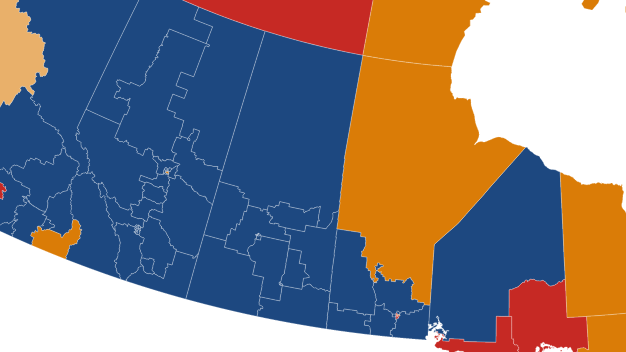Canada, when French was a language of resistance, it can be said that it still is. Here is a story that begins in Saint-Malo in the 16th century: on April 20, 1534, the navigator Jacques Cartier set off west with two ships and around 60 men. In the name of King Francis I, he established a French foothold in Canada and also a language, a language whose history is that of Franco-English rivalry, a language of resistance to English-speaking hegemony. Since then, French speakers in Quebec have very often shown no mercy when fighting for their language!
The Treaty of Paris of 1763 definitively put an end to New France and ceded the provinces of Canada, Acadia and Louisiana to the British crown. Although the treaty ended more than two centuries of French presence in this part of the continent, the French in America did not abandon the region. Some were born there, others emigrated there, and still others are natives or slaves who were allowed to become subjects of the Kingdom of France. The French language no longer has the value of a civilizing project, but it continues to shape the culture of a significant part of the population.
Condemning the abandonment of these provinces by the monarchy, France of the First Republic endeavoured to bring aid to this “lost French people” on the other side of the world. If the latter’s attachment to French culture and language did not diminish, the question of the nationality and status of those then called “Canadians” was delicate. Little by little, British power encouraged the assimilation of these populations and English-speaking culture gained ground. The French language changed its status and, over time, became a political tool and a means of resistance for the French-speaking population, who felt treated like second-class citizens. How did the French language, initially the bearer of a civilising project, become a symbol of resistance? How can we explain that these French Americans and their heirs never renounced the French language and culture?
Together with Joseph Yvon Thériault, sociologist, retired professor at the University of Quebec in Montreal (UQAM), he is a specialist in French-speaking minority communities in Canada. He is notably the author of Creating society: civil society and French-speaking spaces (Sudbury, 2007) and, with Jean-François Laniel, by Return to the Estates General of French Canada. Continuities and ruptures of the national project (Presses de l’Université du Québec, 2016).
And Edouard BaratonDoctor of History, specialist in imperial and post-imperial spaces and French-Canadian relations. He is notably the author of The French lost. Historical essay on French nationality in North America from the 18th century to the present day (Baudelaire Editions, 2019).
The whole question is to find out who these people are who are established on the other side of the kingdom with respect to the kingdom of France. From 1627, the royal authority had established that all natives who became Catholics were subjects of the king, but also “natural French”, that is to say, they could benefit from French law, from Parisian customs on a personal basis, and so on. This also applies to the French settlers who wanted to settle there permanently, as well as their descendants. In 1763, the question arose of what had become, from the French point of view, of this legal framework and the status of its inhabitants, since France no longer ruled over North America, which it lost that year. (…) The status of these Canadians is debated until the French Revolution. Edouard Baraton
Sounds sent:
- Archive – 29.05.1974 – The great battles of the past – with Jean-Charles Bonenfant.
- Archive – 18.07.1967 – France Inter – Picture of French Canadians – Joual, a language of the French Canadians.
- Reading by Marion Malenfant from a letter by Tocqueville dated August 25, 1931 in Lower Canada.
- Excerpt from the series In the service of France (Season 2, 2018) directed by Alexis Charrier.
- poem Speak White (1968) by and by Michèle Lalonde.
To view this YouTube content, you must accept cookies Advertising.
These cookies allow our partners to offer you personalized advertising and content based on your browsing habits, your profile and your interests.

Twitter enthusiast. Organizer. Explorer. Reader. Zombie aficionado. Tv specialist. Thinker. Incurable internet maven.



;Composite=(type=URL,url=https://images.radio-canada.ca/v1/assets/elements/16x9/outdated-content-2015.png),gravity=SouthEast,placement=Over,location=(0,0),scale=1)

;Composite=(type=URL,url=https://images.radio-canada.ca/v1/assets/elements/16x9/outdated-content-2016.png),gravity=SouthEast,placement=Over,location=(0,0),scale=1)
;Composite=(type=URL,url=https://images.radio-canada.ca/v1/assets/elements/16x9/outdated-content-2020.png),gravity=SouthEast,placement=Over,location=(0,0),scale=1)
;Composite=(type=URL,url=https://images.radio-canada.ca/v1/assets/elements/16x9/outdated-content-2022.png),gravity=SouthEast,placement=Over,location=(0,0),scale=1)